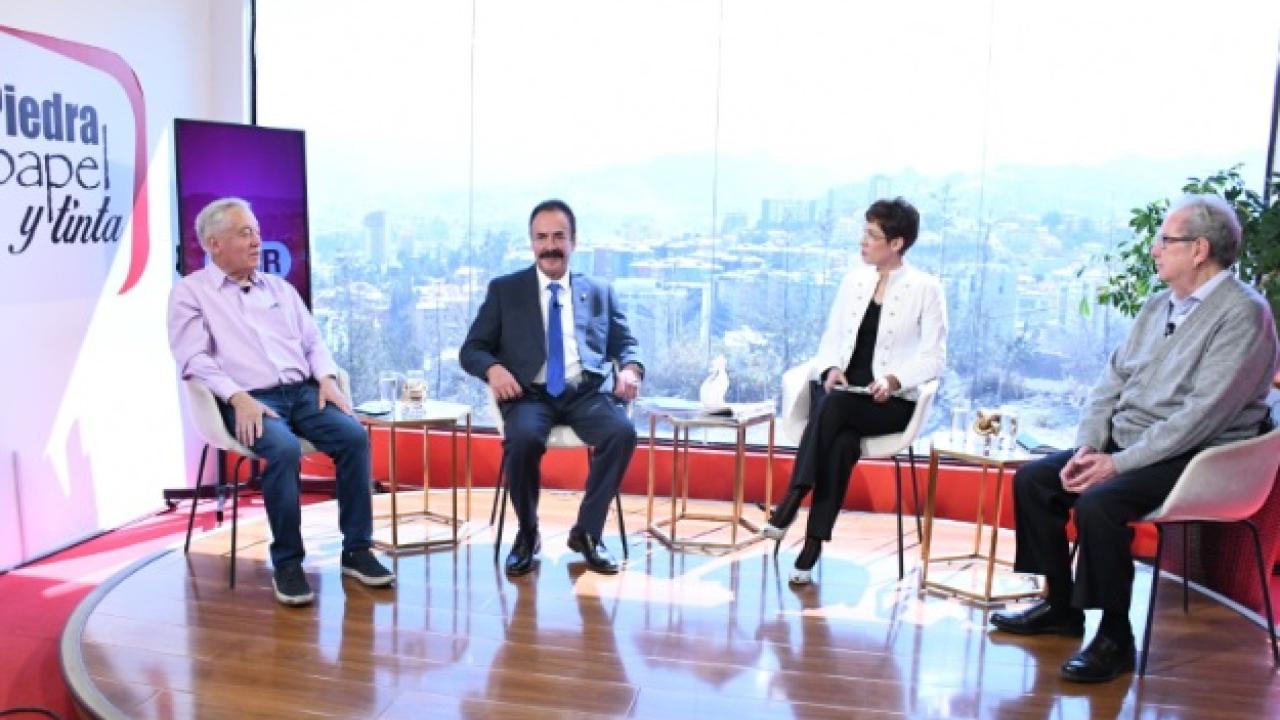
Economists Horst Grebe, Alberto Bonadona and Jaime Ascarrunz, president of the National Chamber of Commerce, advise Luis Arce to lift subsidies, reduce expenses and comply with agreements.
Bolivia is going through an economic crisis marked by a shortage of dollars and fuel, a drop in exports and a lack of solutions to the problem. For this reason, the Government has met with different sectors to find solutions to the shortage of foreign currency that is causing price increases and problems in foreign trade.
Economists Horst Grebe, Alberto Bonadona and Jaime Ascarrunz, president of the National Chamber of Commerce (CNC), gave their recommendations to address the problem in a local television program
Among several proposals, they suggested going to the International Monetary Fund (IMF), lifting the subsidy, reducing public spending and complying with the agreements that emerged from the meetings in recent days.
Bonadona said that if urgent measures are not taken to overcome the complex situation, the IMF will have to be consulted. “It is an imminent need, that is the only alternative we would have. A meeting will not generate dollars.”
Ascarrunz said that the private sector had suggested “courses of action” to the Government. In his opinion, the country can no longer continue subsidizing fuels. “The fact that we have subsidized prices has generated smuggling. The country’s efforts are leading to subsidizing third countries.”
He stressed that the subsidy has been addressed by the Government with the implementation of Ultra Premium 100 gasoline, through a decree, "but it is not yet clear whether it will do the same with diesel" and Liquefied Petroleum Gas (LPG) and Natural Gas for Vehicles (NGV).
Grebe agreed with his colleagues and also suggested reducing public spending. “Between 2005 and 2023, the only sector that grew in added value is public administration, from 12% to 16%.”
In his analysis, spending on public employees generates a deep deficit, and the fall in oil prices adds to this. “This brings us the need to buy fuel.”
He also criticised the government meetings, which he said were an expression of the “impossibility” of reaching a political agreement. “Meetings are not enough; a commission of about 12 people must be formed to make a serious and sincere plan, a working group with technical powers and to make the model more flexible, which in this crisis is a disaster,” he insisted.
Bonadona agreed that the solution should start with a serious political agreement and, subsequently, propose profitable projects and ask for a loan from the IMF to know how to use the money.
"It's not about asking for money, but rather knowing how. They have to be good, profitable projects that generate employment," he said.
Finally, Ascarrunz urged the Government to comply with the agreements. “Someone has to follow up and ensure that they are complied with, otherwise it is a matter of giving up. There is only one year for this Government, the election year can contaminate good intentions.”
Last Friday, President Luis Arce and the country's business leaders agreed on 17 points to boost the economy at the Casa Grande del Pueblo. The second meeting will take place in September.
The agreements include the commitment of the businessmen to seek approval of pending external loans (more than US$ 1 billion) from the Legislative Assembly.
On Saturday, the Government and agricultural representatives and the Agricultural Chamber of the East (CAO) met and signed a four-point agreement, which highlights the joint work to continue with the studies on the use of biotechnology. In addition, to guarantee the legal security of the land and the provision of fuel.









